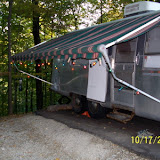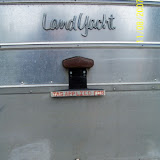
I was a reluctant newcomer to FACEBOOK
 back in the day, August 8, 2008. 8/8/08 -- that was not intentional, but what the bleep? One day, I realized I had over 100 friends. Somehow, that was shocking. It's been a long time since I've been "Annie Social" (in seminary). I think I've become more of an introvert over time.
back in the day, August 8, 2008. 8/8/08 -- that was not intentional, but what the bleep? One day, I realized I had over 100 friends. Somehow, that was shocking. It's been a long time since I've been "Annie Social" (in seminary). I think I've become more of an introvert over time.One day, I looked at that list of friends and realized I was not really friends with that many people. We go to church together, we went to school together, we met at a party, or someone thought we would have a lot in common.
One day, I realized I was using FB to process too much of my inner life to have that many acquaintances looking on. I also realized I could not really say I wanted to be friends with some people who perhaps were students at some distant past time, or maybe we had known each other in college, before I knew I was a Lesbian, and this would be juicy gossip to pass around the old circle of friends. Maybe we knew each other from times past that I had left not just geographically, but also spiritually, emotionally, and the like. Some ground is just too full of roots and stones to keep breaking your plow over again.
So, I unfriended a lot of people one day. I figured maybe if someone I unfriended really wanted to be considered friends, they would miss me and get in touch. And, happy to say, one person did that.
I've had some contact from long ago acquaintances who wanted to "friend" me. I feel ambivalent about it, so I just don't respond. There's something kind of rude about blocking someone outright. Maybe if I let the invitation linger, there might be some additional correspondence later on with some additional self-disclosure, explaining more about why being friends with me would be a good or helpful or just pleasantly friendly thing to do.
Sometimes I think I learned to be too guarded in the past. For so many years, as I was coming into awareness of who I was in terms of loving a woman, and deciding how political I wanted to be about that (very much, as it turns out), I wanted control over access to my private world. Turns out, others made their incursions. I've written much earlier here about how that worked, with being outed, with people passing along rumors and lies along with some of the truth, with people of faith turning out to be extremely cruel and stupid. Yea, verily, don't cast your pearls before swine.
A time came when I relinquished that control. But, in the Facebook world, with people showing up again after eras of life have come and gone -- and with the present being so full of what it simply IS every day -- matters that once were private, like coming out, are now passé to me yet shocking to others. Now, I find that same old pearl-casting is falling into the wrong trough.
Maybe I'm too self-conscious to be comfortable on Facebook. Or, rather, maybe it's that I want too much to have my life integrated and consolidated through all of these eras and changes. I want so much for it to have a story line, a narrative, a point.
Maybe everyone goes through radical changes and interruptions in their previously settled senses of what is normal. Surely, I'm not the only one who has allowed the messy, the unexpected, the shock of death, the coming home to self that is being gay, the snags and hooks of certainty that are embedded in a certain way of having faith, and the senses of essential self and essential desires to find meaning and purpose in ways that continue to bring unexpected and unconventional quasi-, parti-, non-, semi-resolution over time. And, I really hope that essential self and those essential desires will hit home with some, to have that feeling of settling down in easy chairs by the fire to catch up and be with each other, authentically.
Apparently, many people want the same. And, I really love the here-and-now information sharing that simply moves us all, even the trivial "I'm up now and blowing my nose" posts that say we're all just getting on with our days. Somehow, that number of friends keeps creeping up over 100. Not sure today, maybe around 125? I'm just going to let it be what it is.
See, I loved and love many of these old friends who keep showing up in my inbox, my request box. I wish to say, come on in, see what has been happening all these years. See what there is to see. Stay, if you like. Move on with me. See what Love has brought to me over the years. See what Living has taken, too. Be sad with me. Rage against the injustice with me. Celebrate the whole with me. I'll try to be as forgiving as I want you to be with me. There is no time to linger, it all changes so fast.


